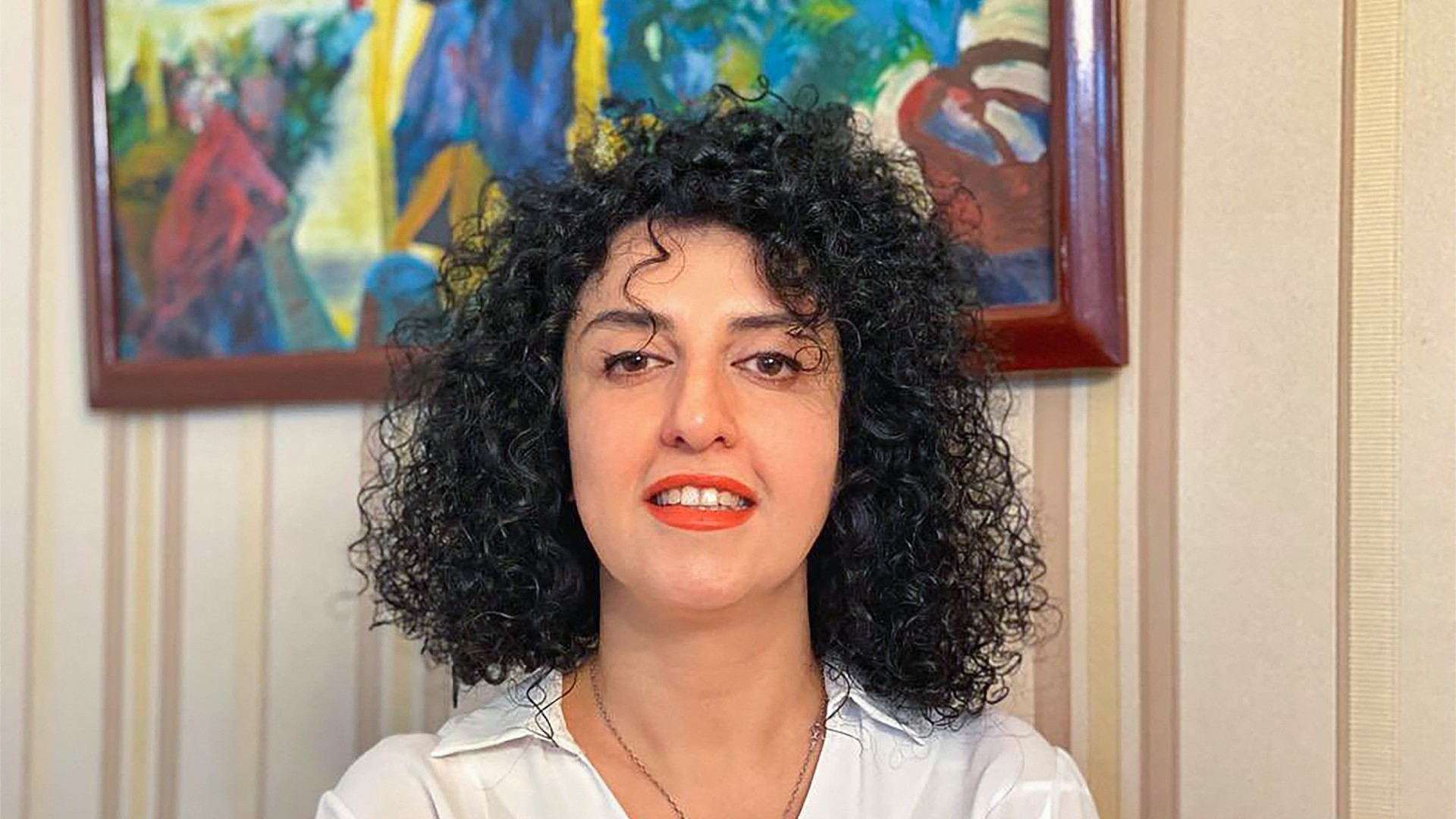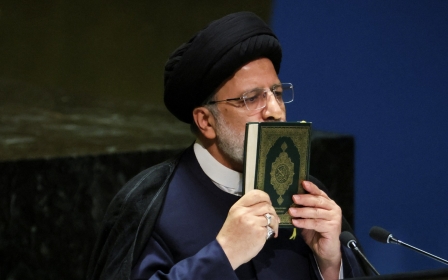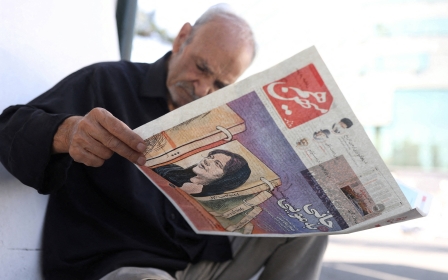Nobel Peace Prize: Iranian women's rights activist Narges Mohammadi wins

Imprisoned Iranian human rights activist Narges Mohammadi has won the 2023 Nobel Peace Prize.
The Norwegian Nobel Committee said it awarded Mohammadi the prize “for her fight against the oppression of women in Iran and her fight to promote human rights and freedom for all”.
Mohammadi is currently jailed in Iran’s Evin prison and faces a 12-year sentence related to her work promoting women’s rights and opposing the death sentence.
The award comes a year after a 22-year-old Iranian woman, Mahsa Amini, died in police custody after being arrested for “improperly” wearing her hijab.
Amini’s death sparked a women-led anti-establishment protest movement that Iranian authorities struggled to control for months.
New MEE newsletter: Jerusalem Dispatch
Sign up to get the latest insights and analysis on Israel-Palestine, alongside Turkey Unpacked and other MEE newsletters
Berit Reiss-Andersen, the head of the Norwegian Nobel Committee in Oslo, began his speech by saying, in Persian, “women, life, freedom” – the three words that became the slogan of the Mahsa Amini protest movement.
Reiss-Andersen added that the award recognises the hundreds of thousands of Iranians who protested for women's rights and against repression.
Iran's foreign ministry on Friday condemned the decision saying it was a "biased and politically motivated" action to award a person "convicted of repeated law violations and criminal acts".
"The action of the Nobel Peace Committee is a political move in line with the interventionist and anti-Iranian policies of some European governments,” the statement read.
Around 500 people were killed and tens of thousands arrested during the Iranian authorities' crackdown on the protest movement.
In the jury's citation, Reiss-Andersen said Mohammadi's "brave struggle has come with tremendous personal costs. Altogether, the regime has arrested her 13 times, convicted her five times, and sentenced her to a total of 31 years in prison and 154 lashes."
In response to the award, the United Nations called on Iran to release Mohammadi, whose latest imprisonment began in November 2021.
Last month, Iran passed a new law mandating stricter penalties for women violating dress codes, including heavy fines and prohibiting employment.
The Support for the Culture of Hijab and Chastity law, as the legislation is known, was drafted after previous attempts to clamp down on women - such as through the use of facial recognition cameras - failed to stop people from being in public without a hijab.
Azadeh Moaveni, a prominent Iranian writer, said on X, the platform formerly known as Twitter, that the award was "another political Nobel", and that it was "an Afghan woman’s turn, after what has been done to their country".
"But we will take it & celebrate the formidable Narges & be thankful it didn’t go to some Iranian diaspora hack," she added. "The long fight for equality continues."
This article is available in French on Middle East Eye French edition.
Middle East Eye delivers independent and unrivalled coverage and analysis of the Middle East, North Africa and beyond. To learn more about republishing this content and the associated fees, please fill out this form. More about MEE can be found here.




